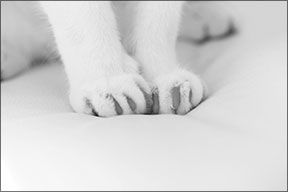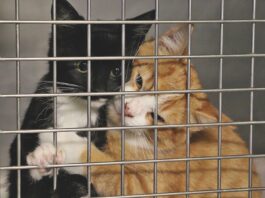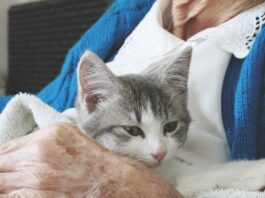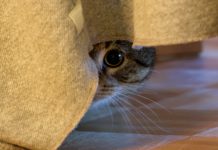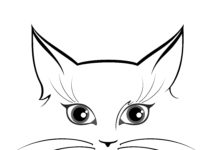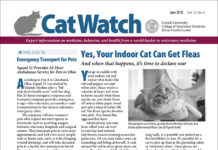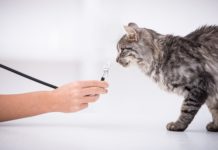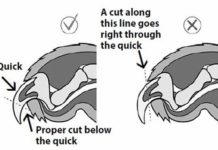Chronic Bladder Infections
My cat is 2 years old and is having a problem urinating. He has been on a daily antibiotic for a month and has recurring bladder infections every month or two. One of my concerns is that hes on antibiotics so often that they will kill his immune system. My other concern is whether theres any hope for him. Can you help us?
Caring for Your Cat After Surgery
Incisions are delicate. Even if your veterinarian has opted to use stainless steel suture to prevent a pet from ripping the suture material, the skin itself can be torn. If your cat rips open her incision, she may be allowing things that should be inside her body to get out and allowing things from the outside world to get in.
Five Common Household Feline Toxins
From the ASPCA, the top five toxins of 2017
Do You Google?
Did you know that what you type into that search-engine box can make a world of difference when it comes to veterinary information? A 2010 study proved what most of us already knew: The quality of Internet information varies widely.
Periodontal Disease and Chronic Kidney Failure
While studies have looked at the connection between periodontal disease and kidney failure in dogs, it is only recently that such a connection has been evaluated for cats. In the March 2018 issue of the Journal of the American Veterinary Medical Association, a cooperative study between the Banfield Pet Hospitals centered in Vancouver, Washington, and the University of Minnesota looked at associations of these two health problems in cats.
Emergency Transport for Pets
According to Fox 8 in Cleveland, Ohio, Squad 51 was started by Yalanda Medina after a life-and-death health scare with her dog. Her 24-hour emergency response and transport company provides emergency triage-like veterinary paramedics-and transportation to the nearest veterinary emergency clinic.
Yes, Your Indoor Cat Can Get Fleas
You go to cuddle with your indoor cat and notice what looks like salt and pepper on your white shirt. Since youre a scientist at heart and want to know exactly what those specks are, you shake them off onto a white paper towel and add a drop of water. Oh no! The black specks dissolve into pink. You found flea eggs and flea feces.
Protozoal Intestinal Parasites
When the topic of intestinal parasites comes up, people immediately think of worms, such as roundworms (ascarids) and tapeworms. However, other parasites may be more common and equally debilitating for your cat.
Handle Choking Properly
Choking is an emergency. Cats can choke on kibble or toys, but most commonly, they come to the emergency room choking on a foreign object due to chewing on thread or swallowing needles, says Dan Fletcher, DVM, Ph.D., Assistant Professor of Emergency and Critical Care at the Cornell University College of Veterinary Medicine.
Cats Hide Signs of Hip Dysplasia
A diagnosis of hip dysplasia might take you by surprise. Usually, a cat comes into the veterinarian because the owner notices that the cat is lame or sore, or less active than normal. Some cats with hip dysplasia will be consistently off in their gait, while other cats only show stiffness after a wild chase through the house.
Trim Those Nails
Many cats will wear down their nails with routine scratching (hopefully on an approved scratching post and not your furniture), but for others, were responsible for their pawdicures. You may need to keep your cats nails trimmed to lessen the damage from scratches or to make your cats affectionate kneading less painful. Cats who dont wear down their nails must be trimmed regularly to avoid the nails growing into the cats paw.

